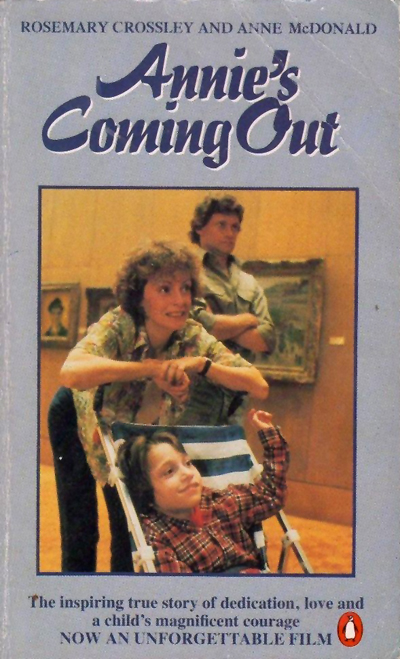
- Free Article: No
- Contents Category: Memoir
- Review Article: Yes
- Article Title: The Greatest Agony
- Online Only: No
- Custom Highlight Text:
This is the story of one woman’s crusade to achieve social justice for a handicapped child. It is one person’s elevation of the ineptitude, the hypocrisy and the dishonesty that became associated with a particular group of handicapped children. It concerns an institution that attempted to tum a pretext into reality rather than declare that a terrible mistake had occurred. Rosemary Crossley found Annie in St Nicholas Hospital in 1976. The hospital was originally a children’s hospital built in the 1890s. In 1964 The Mental Health Authority took possession of the buildings and after demolishing some and refurbishing others opened again in order to cater for the needs of severely and profoundly handicapped children, those whose purported I.Q.s were believed to be below thirty. Although it was originally designed to cater for individuals on a temporary basis most of those who came never left. It is perhaps Indicative of our attitudes towards the handicapped that the ‘high brick walls topped with barbed wire and broken glass’ were left untouched. One wonders whether the author of the slogan ‘Break Down the Barriers’ had this in mind when he took up his pen.
- Book 1 Title: Annie's Coming Out
- Book 1 Biblio: Penguin, $4.50 pb, 251 pp
- Book 1 Cover Small (400 x 600):

- Book 1 Cover (800 x 1200):

Almost without exception handicapped children are subject to more than one debilitating condition. Annie was labelled profoundly retarded. One is never told how this remarkable decision was made. If in fact Annie was ever given an I.Q. test one must certainly admire the skill of the tester. Consider her physical condition:
The nature of her problem meant that she could not lie on her back. Her legs were bent backward, her head and neck were extended backward and her arms were pushed out behind her. She was shaped like a bow with her arms as a bowstring almost touching her heels. Her tongue was going in and out non-stop, and she was incredibly unbelievably thin. She was about 100 centimetres long. You could see the outlines of her muscles and her face was like a skull.
Annie was sixteen years of age. She had been institutionalised since the age of three. Rosemary Crossley worked in the hospital. She came to the conclusion that Annie, although lacking in speech, did have language and an intellect within her withered body that was comparable to a normal person. How Rosemary attempted to provide a pathway for Annie to exhibit her intellectual ability is a story strewn with frustration, callousness and lack of interest. Annie was lucky! Few of us will ever have the good fortune to have as dedicated and passionate an advocate as Rosemary Crossley.
For too long concealment and secrecy have been the tools our society has used to solve the problems of the handicapped. This particular form of treatment of the individual, when carried out in the Soviet Union, is treated with the abhorrence it deserves. It is however promoted on a grand scale with those within our own community who fail to conform because of intellectual or physical handicap.
The obvious lack of staff in such institutions is to be deplored. How can one reasonably expect these children to take their proper place in society, an obvious aim of any institution one would think, when staff members are forced to begin feeding children at 3.30 in the afternoon in order that all children receive dinner? One wonders whether you or I would go from 4 pm to 8 pm in the morning without a snack. No time is available for individual growth. Personal development is limited to a suppository being rammed into you so that you will excrete in unison. Conservatism and apathy have been government’s answer to the question of care for the handicapped. One must seriously question the medical model that is so often associated with the intellectually handicapped. There are schools, and I am in one, where severely and profoundly handicapped children are receiving an education. One wonders whether Annie, if placed in an educational paradigm, would have had to wait sixteen years before her intellectual capacity was discovered.
Rosemary Crossley fought her case to the High Court. After two hearings Annie was given into the custody of her mentor and friend. How many more Annies are locked away? Will each one require a Rosemary Crossley to advocate his rights as citizens of our society? Annie states that: ‘Failure is no crime. Failure to give someone the benefit of the doubt is.’ Perhaps in this Year of the Disabled Person we can come to terms with the immense problems that society needs to overcome before we can give those less fortunate than ourselves the dignity they deserve as being part of the human race. The greatest agony is to feel that one has been utterly forsaken. Annie suffered this agony.


Comments powered by CComment